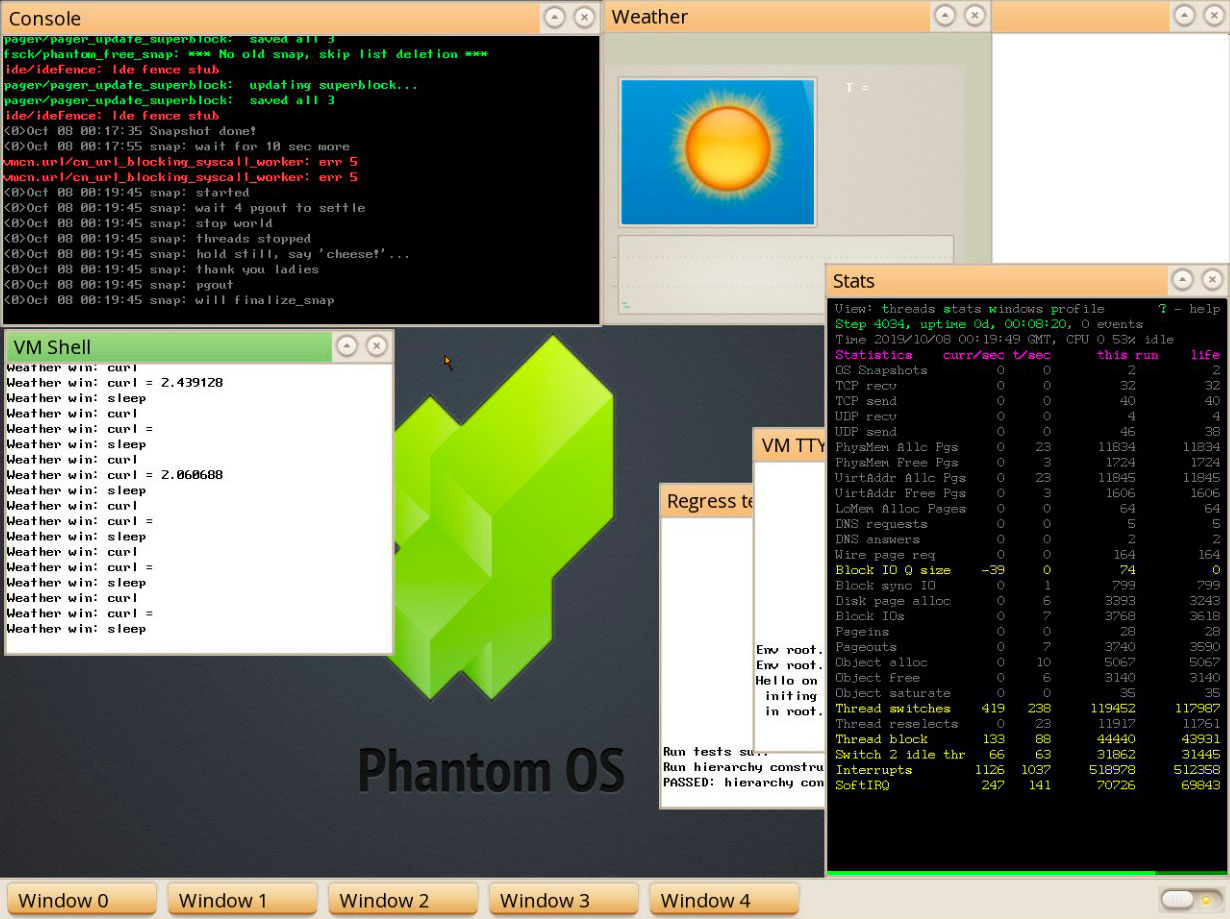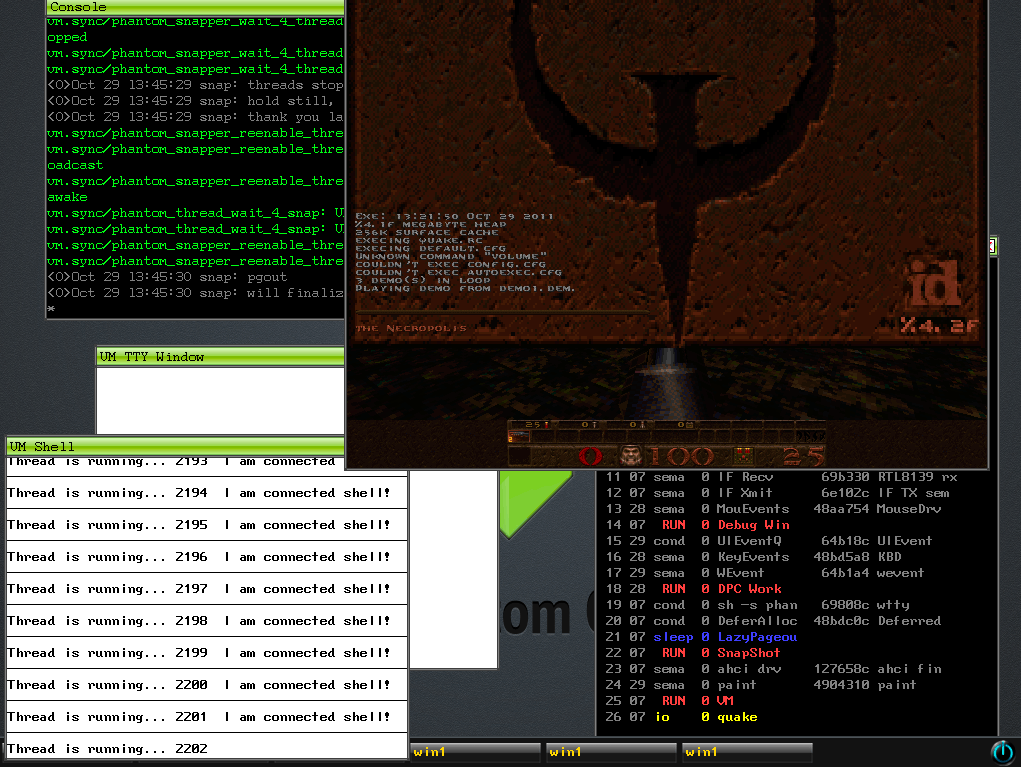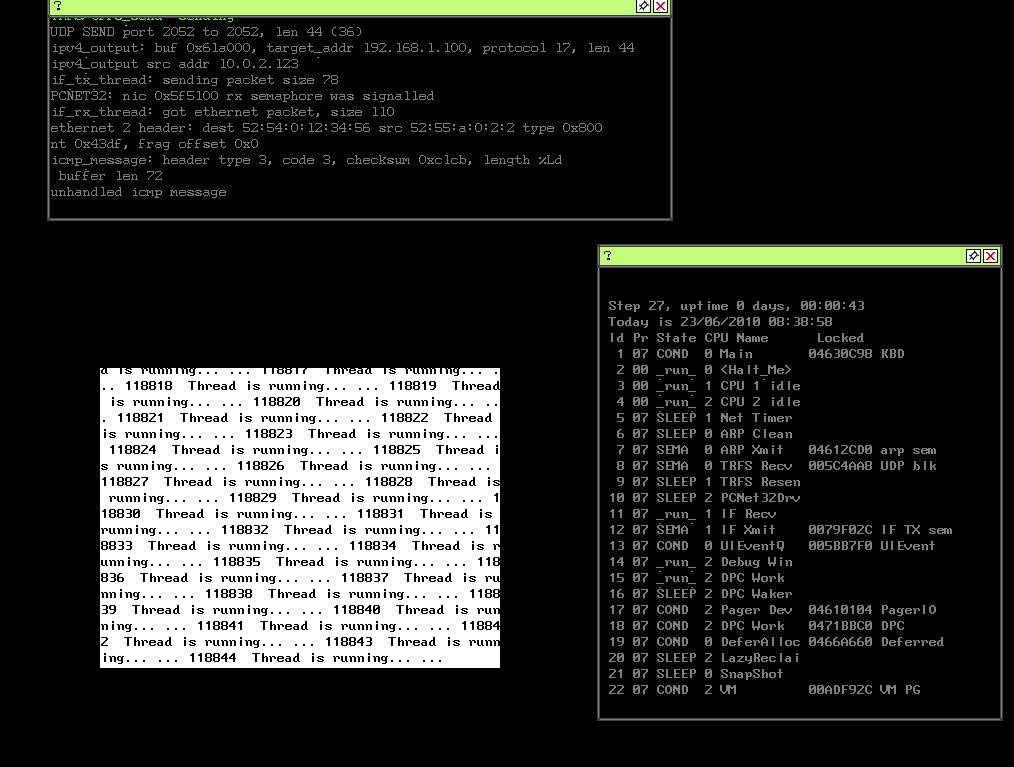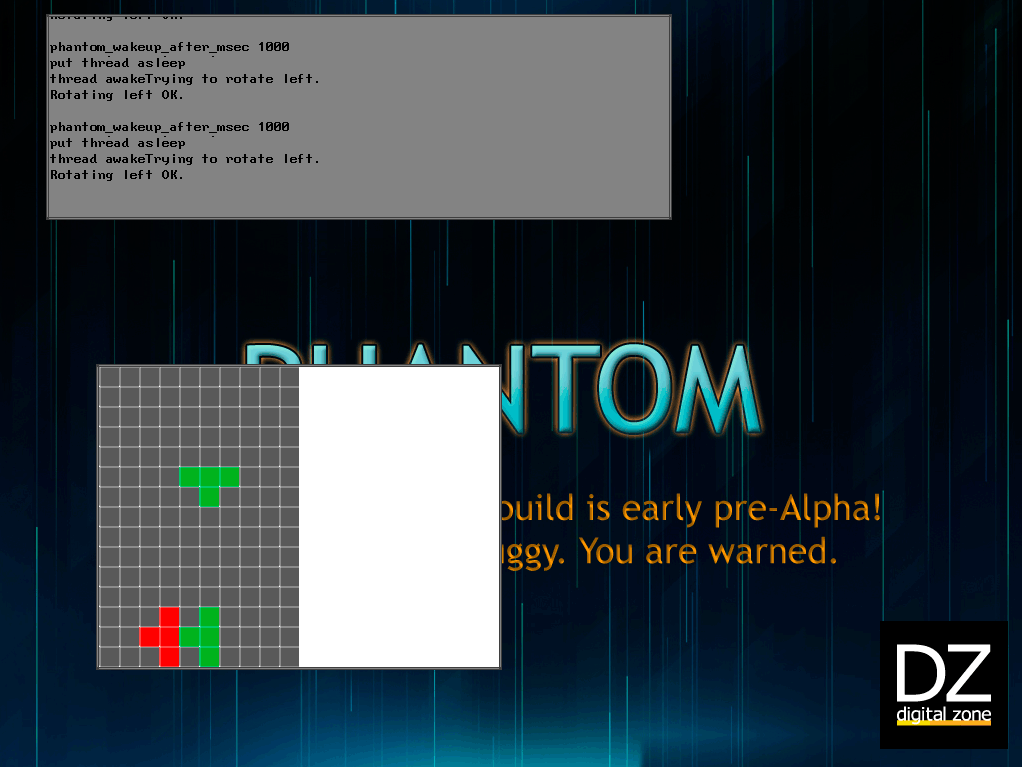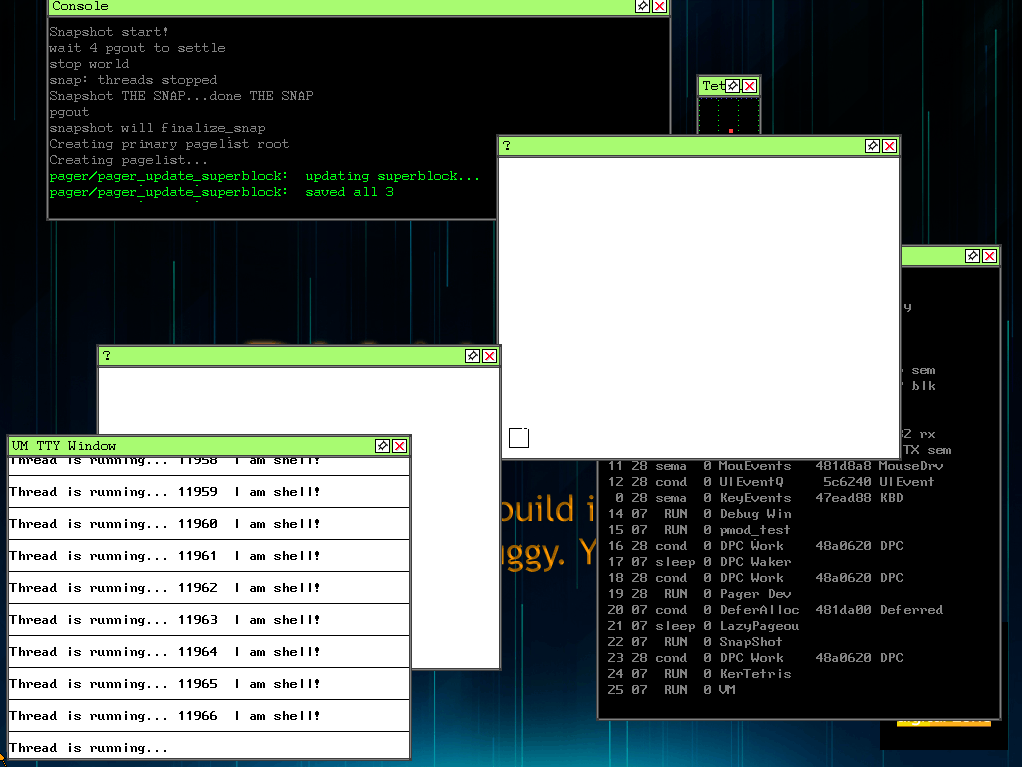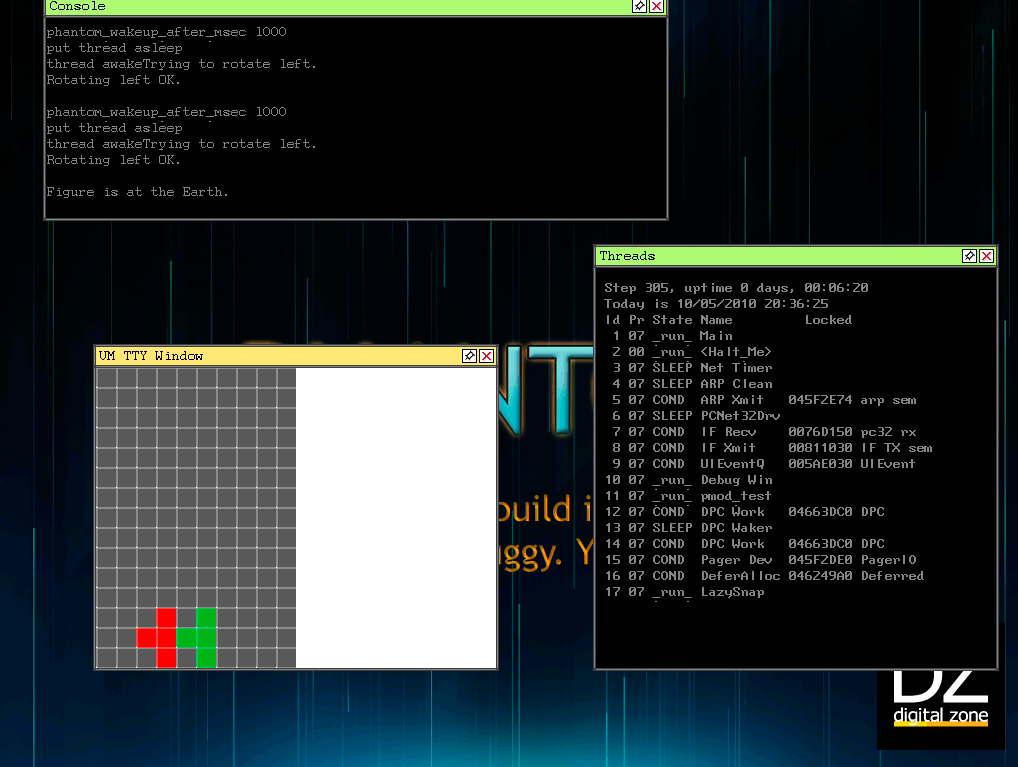What is this OS about?
Phantom is, basically, a virtual machine (VM) working in a huge persistent virtual memory. Part of the VM classes (some classes, called 'internal') are implemented in kernel, giving VM code access to low level kernel services. Persistent virtual memory is completely orthogonal to object space and VM (no relation between, for example, object boundary and virtual memory page, etc.) and is implemented so that abrupt computer failure or loss of power leaves system in coherent state. On the application code (VM bytecode) level OS shutdown (either manual or caused by failure) is not even 'seen' - applications and their data are 'never die', they continue their work after the next OS boot up as if no shutdown ever happened.
codePersistent memory and snapshots
Phantom does regular snapshot of the whole virtual memory. Snapshots are done asynchronously and without stopping the world, but resulting snapshot is synchronous - all the memory is being snapped at the very same moment in OS's 'personal' time. It means that snapshot state is captured like if all the system was stopped, dumped to disk and then run again. But without stopping.
Native code
Hi-performance code (number-crunching, video or sound processing, etc) requires good low-level access to the processor and memory. It is supposed that Phantom will be able to run native code in a special binary-object-bound thread. One binary object will provide code (CS content), others will be available as DS/SS and, possibly, ES/FS/GS (on other architectures there objects will be just mapped in thread address space). It will let Phantom to execute highly-optimised native code. It is supposed that to support some portability it will be possible to provide not exactly native, but LLVM-level code for this environment.
Virtual machine
Phantom bytecode is traditional stack-machine bytecode. It is very like Java bytecode, but there is no difference between built-in and user types on the method boundary level. Any object (even integer) is class instance. There is some specific support for integer calculations though, to speedup things. It is supposed that Phantom bytecode can represent any Java program, and Java to Phantom bytecode converter is being written. Other languages are supposed to be brought through the Java bytecode or directly, by writing specific language frontend. C# (CLR) bytecode converter is planned, but no work is in progress yet.
Kernel communication
There is set of (internal) classes, which methods are implemented in kernel. These classes offer kernel interface in object environment. Unlike Java, in Phantom all the class code is either internal (native, in Java terms), or bytecode-level.
Drivers
Currently drivers are written in C and live in the kernel completely. Future releases will have possibility to write drivers in userland by providing required kernel frameworks. Userland driver will be restricted to communicate with given (by kernel) set of hardware resources only, and its interrupt-handling method will be guaranteed to not to be paged out.
POSIX environment
There is (very simple) POSIX subsystem in Phantom. It is not persistent (yet?). As an example, Quake application is compiled for POSIX subsystem.
JOIN US AS DEVELOPER
Basically, most of code we upload is very straighforward and, sometimes, dumb. That, to some extent, is on purpose. We want to have a working system first and polish it next. Besides, not all the concepts and design decisions are final, so it is of no use to finalize all the implementation desisions now as well.
What people say

The Register
"Russian rides Phantom to OS immortality"
Phantom is a different approach on the OS than any other out there, with the primary goal of being immortal. In Phantom, powering off the computer will not cause programs to lose state. They can pick up where they left off as soon as the machine is turned back on.
Team
People who contributed code and efforts to the Phantom OS project
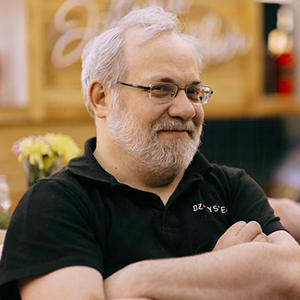
Dmitry Zavalishin
concept, code
Seva Gluschenko
QA/CI
Max Filippov
Low level kernel programming
It might be you
codeEvents that we participated
There are some events where Phantom OS was presented




Frequently Asked Questions
Some points in short
-
Why not Linux?
Because Linux has already existed. Phantom OS concept offer different ideas which can't be used today, but will be definitely used tomorrow.
-
Why join?
Even we can't promise you will be the author of new Windows, Linux or Android, there is real opportunity to make earth spin a little bit faster. There are true innovations under the hood.
-
Can you prove it is not fake?
Just look at code (you can assemble and run it yourself): github
-
Your ideas about persistance, objects and vm are old ones!
True. Everything used in today's OS was invented mostly in 1960th. The point is how to combine and use these known ideas to get new characteristics. Even same ideas works differently depending on the particular epoch.

